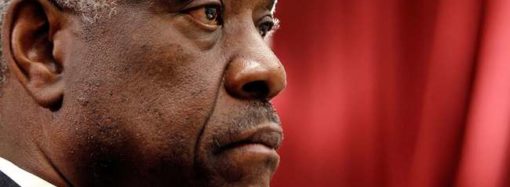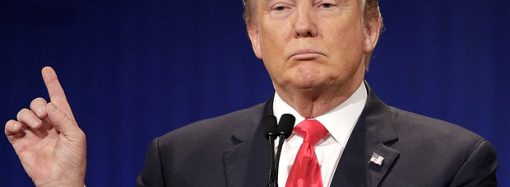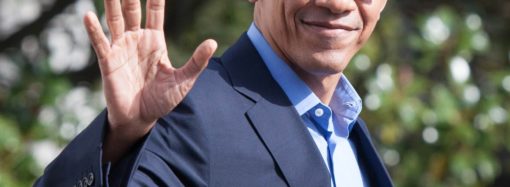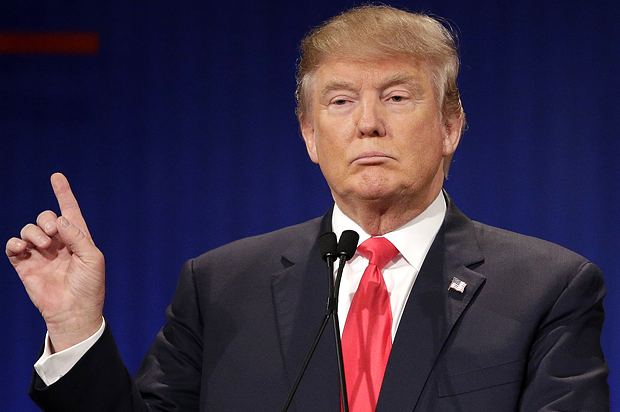This essay first appeared in the June 13, 2024 Epoch Times.
A leading legal scholar argues that the New York “business records” prosecution against former President Donald Trump violated his constitutional right to trial by jury. If so, the conviction should be set aside.
Seth Barrett Tillman, a Harvard-trained law professor now working in Ireland, became famous in legal circles when he opposed the court proceedings that claimed the former President was an “insurrectionist” and thus constitutionally barred from running again. The plaintiffs relied on the Disqualification Clause of the 14th amendment. But Prof. Tillman pointed out that the presidency is not covered by that clause. I should add that he arrived at that position long before the Trump proceedings—as I reported in a 2012 internet posting.
In dismissing the disqualification case, the Supreme Court did not address the issue Tillman raised. But the Colorado trial court that initially heard the controversy ruled for Trump on precisely that basis.
Criminal Juries Must be Unanimous
Prof. Tillman points out that the constitutional right to trial by jury in a criminal proceeding requires that the jurors be unanimous not just in their final verdict, but on certain other points as well. According to Tillman, Justice Juan Merchan misled the jury in that respect.
Understanding Tillman’s argument requires some unpacking. So let’s go through it step by step.
First: Article III, Section 2 of the U.S. Constitution provides that “The Trial of all Crimes, except in Cases of Impeachment shall be by Jury . . . .”
The Sixth Amendment reinforces this rule: “In all criminal prosecutions, the accused shall enjoy the right to a speedy and public trial, by an impartial jury . . . .”
Originally, this “trial by jury” requirement applied only in the federal courts. However, the Supreme Court has ruled that the 14th amendment’s Due Process Clause effectively imposed the jury requirement on the states. (I have my doubts about the accuracy of this conclusion, but it is the Supreme Court’s opinion that counts—not mine.)
What does “trial by jury” mean? Could you have a three-person jury with the decision of any two jurors prevailing?
Not according to James Madison. He emphasized that when the Constitution uses legal terms, those terms include all their “customary incidents.” This means the legal terms include the usages from the Founding Era.
The modern Supreme Court agrees—but in a more colorful way: “[I]f a word is obviously transplanted from another legal source,” the court says, “. . . it brings the old soil with it.” The justices unanimously confirmed this last month. (This “old soil” rule is one of many reasons we know a “convention for proposing amendments” is a convention of the states.)
In 2020, the court decided Ramos v. Louisiana. It held that part of the “old soil” for trial by jury is that a 12-person jury must be unanimous—at least in trials for serious crimes. (Former President Trump was convicted of a felony.)
Criminal Subjects and Predicates
Now let’s add some criminal law to the mix:
Sometimes a conviction for one crime (call it “Crime A”) requires a jury to find that the defendant committed another crime (call it “Crime B”). Crime B is called the “predicate.”
Some offenses might have alternative predicates. For example, a law might provide that before a jury convicts for Crime A, it must decide that the defendant committed Crime B or C or D. But—and this is important—it must agree unanimously as to which predicate crime (or crimes) the defendant committed.
Thus, on a 12-person jury, it is not enough for five to conclude the defendant committed Crime B, four to conclude that he committed Crime C, and three to conclude he committed Crime D. It is not even enough for eleven to conclude he committed Crime B and one to think he committed C. All twelve must agree that he committed the same predicate offense.
The Trump Charges
New York prosecutor Alvin Bragg charged President Trump with “Falsifying Business Records in the First Degree.” What made the charge so serious—and therefore “first degree”—is the claim that Trump created false records with “an intent to commit another crime or to aid or conceal the commission thereof.”
So what was that “[o]ther crime?”
Supposedly, it was violating Section 17-152 of the New York Election Law. Section 17-152 bans conspiring “to promote or prevent the election of any person to a public office by unlawful means.” Notice that “unlawful means” refers to some other offense. It is the predicate for Section 17-152.
Notice also the jerry-built structure of this prosecution: The principal charge required a predicate crime, which in turn required another a predicate crime.
The prosecution offered three alternative offenses as the “unlawful means.” They were (1) violation of the Federal Election Campaign Act, (2) falsification of other business records; and (3) violation of tax laws. If the jury decided that President Trump was guilty of any of these three, that would be a sufficient predicate for violation of the New York Election Law.
But, as I noted above, the jury would have to be unanimous on at least one of the three predicates.
Justice Merchan’s Possible Mistake
In his charge to the jury, Justice Juan Merchan said, “Although you must conclude unanimously that the defendant conspired to promote or prevent the election of any person to a public office by unlawful means, you need not be unanimous as to what those unlawful means were.” In other words, it was fine if the jury split 5-4-3 on which predicate crimes President Trump committed.
Professor Tillman contends that this was a mistake. If he is right, then the Trump verdict should be reversed on appeal. Unfortunately, however, that reversal is unlikely to occur before the November presidential election—as is true of much of the “lawfare” waged against the former president.








